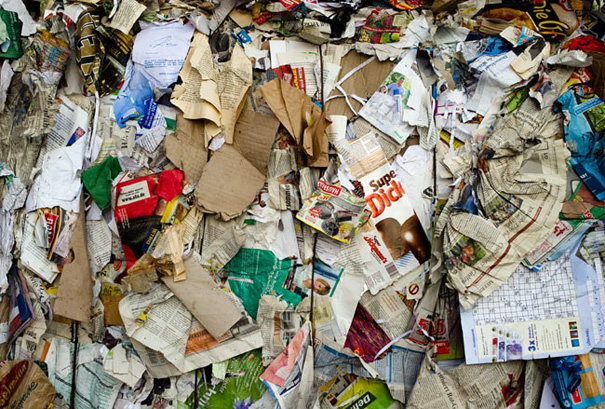Smurfit Kappa Invests in New U.K. Recycling Depot
Smurfit Kappa’s recycling operations in the U.K., one of the largest recyclers of paper and cardboard in the country, has completed a program of investment in its national depot network, designed to save energy, increase the efficiency of its operations, improve worker safety, and enhance customer experience. The work has included development of a new depot in Snodland, the installation of new balers at its Snodland, Blackburn, and Glasgow depots, and an additional weighbridge in Nottingham to ease traffic flow into and out of the depot there.
The new Snodland depot in Kent is processing locally-sourced paper and paperboard for recycling at the Group’s new Smurfit Kappa Townsend Hook mill on the same site, which operates a state-of-the-art 5m lightweight paper machine producing approximately 250,000 metric tpy of quality containerboard material. The depot will also supply recycled paper grades not used at Townsend Hook to other mills. Smurfit Kappa Recycling has constructed the new depot on part of the mill site freed up by its redevelopment, installing a new Bollegraaf HBC 120 baler in a new facility designed to operate efficiently and safely.

The company has also installed a second Bollegraaf HBC 120 baler at its Glasgow depot and a larger HBC 140 baler in Blackburn. Each sits at the heart of the paper recycling facilities, which have been redesigned to ensure more efficient and safer working conditions with improved material flows. Locally-collected paper and paperboard is made into compacted bales that are then ready for transportation to paper mills for recycling.
When the new balers are idle and waiting for new material, they automatically enter a power save mode after 180 seconds while remaining ready to restart at any time, leading to substantial power savings. As well as being quieter and more efficient, the new balers and their installation have also been designed to be as safe as possible and to meet the safety requirements of BSEN 16252:2012. As a result, the need for working at height has been minimized and the interaction between people and the machine can be kept to an absolute minimum.
The company has also invested heavily in a number of other health and safety improvements across its depot network to improve pedestrian and transport segregation. This has included the installation of new gates, A-Safe barriers, improved lighting and signage. All of Smurfit Kappa Recycling’s depots are certified to OHSAS18001, the Occupational Health and Safety Management System Standard as well as BS EN ISO14001, the internationally-recognized Environmental Management System Standard.
Traffic flow into and out of Smurfit Kappa Recycling’s Nottingham depot has also been transformed after the installation of the additional weighbridge. A safer and quicker route for vehicles to move through the depot has been made possible by siting the new weighbridge and exit on one side of the site away from the existing entrance weighbridge. Previously all vehicles had to use one weighbridge and a single entrance and exit, which required skillful and disruptive maneuvering to turn vehicles. Now drivers can move safely through the site one-way only and leave the depot over the new weighbridge and out of a new exit. The changes have helped to improve the efficiency of the entire operation and prevent vehicles queueing outside the site at peak times. One-way traffic through the depot has also helped to reduce interaction between operatives and vehicles, further improving safety.
"At Smurfit Kappa Recycling, we are committed to sustainable development as we strive to enhance environmental performance, safety, and customer service. This round of investment in the facilities at our Snodland, Glasgow, Blackburn, Nottingham, Birmingham, and Tamworth depots is further evidence of this commitment," said Paul Clarke, the company’s managing director.
Smurfit Kappa owns two paper mills in the U.K.—in Birmingham and Snodland, which in a typical year reprocess around 500,000 metric tons of paper and paperboard, enabling the company to recycle as much paper based packaging as it produces.
TAPPI
http://www.tappi.org/

